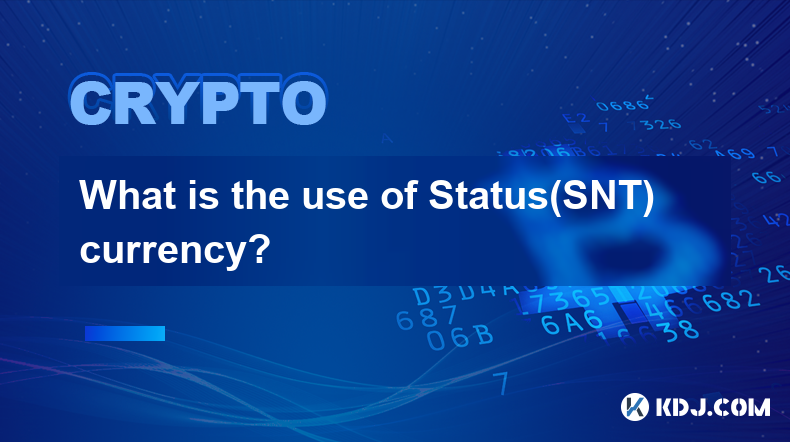-
 Bitcoin
Bitcoin $99,325.5277
2.48% -
 Ethereum
Ethereum $1,957.8293
7.06% -
 Tether USDt
Tether USDt $1.0005
0.00% -
 XRP
XRP $2.2082
3.46% -
 BNB
BNB $613.9617
0.95% -
 Solana
Solana $154.9743
5.46% -
 USDC
USDC $1.0000
-0.02% -
 Dogecoin
Dogecoin $0.1835
6.34% -
 Cardano
Cardano $0.7226
6.47% -
 TRON
TRON $0.2504
1.28% -
 Sui
Sui $3.7938
12.50% -
 Chainlink
Chainlink $14.9023
8.13% -
 Avalanche
Avalanche $20.9246
6.79% -
 Stellar
Stellar $0.2746
5.20% -
 Bitcoin Cash
Bitcoin Cash $410.3986
12.53% -
 UNUS SED LEO
UNUS SED LEO $8.8086
1.42% -
 Shiba Inu
Shiba Inu $0.0...01346
5.17% -
 Hedera
Hedera $0.1859
5.60% -
 Toncoin
Toncoin $3.1244
3.81% -
 Hyperliquid
Hyperliquid $21.5713
2.02% -
 Litecoin
Litecoin $91.6127
1.28% -
 Polkadot
Polkadot $4.2356
7.07% -
 Monero
Monero $293.3889
3.42% -
 Dai
Dai $1.0001
-0.02% -
 Bitget Token
Bitget Token $4.3248
0.45% -
 Ethena USDe
Ethena USDe $1.0004
0.00% -
 Pi
Pi $0.6220
6.61% -
 Pepe
Pepe $0.0...09218
13.47% -
 Bittensor
Bittensor $398.3299
9.28% -
 Uniswap
Uniswap $5.2179
8.02%
What is the use of Status(SNT) currency?
Within the Status ecosystem, the SNT token plays a significant role in facilitating messaging, payments, governance, staking, and developer incentives.
Dec 09, 2024 at 12:31 am

What is the Use of Status (SNT) Currency?
Status (SNT) is a decentralized messaging application that allows users to communicate with each other securely and privately. The app is built on the Ethereum blockchain, and it uses the SNT token to facilitate transactions within the network.
The SNT token is used for a variety of purposes within the Status ecosystem, including:
- Messaging: Users can send and receive messages for free using the SNT token. The token is also used to pay for premium features, such as group chats and file sharing.
- Payments: Users can use the SNT token to make payments to other users within the network. The token can be used to purchase goods and services, or to send money to friends and family.
- Governance: The SNT token is used to govern the Status network. Token holders can vote on proposed changes to the network's protocol, and they can also participate in the network's decision-making process.
Status has a number of advantages over other messaging applications. The app is decentralized, which means that it is not controlled by any single entity. This makes the app more resistant to censorship and surveillance. The app is also open source, which means that it is constantly being improved and updated by the community.
Status is still under development, but it has the potential to become a major player in the decentralized messaging market. The app offers a number of unique features, and it is backed by a strong team of developers.
Here are some of the specific use cases for the SNT token:
- Messaging: Users can send and receive messages for free using the SNT token. The token is also used to pay for premium features, such as group chats and file sharing.
- Payments: Users can use the SNT token to make payments to other users within the network. The token can be used to purchase goods and services, or to send money to friends and family.
- Governance: The SNT token is used to govern the Status network. Token holders can vote on proposed changes to the network's protocol, and they can also participate in the network's decision-making process.
- Staking: Users can stake their SNT tokens to earn rewards. Staking helps to secure the network and it also gives users a voice in the network's governance.
- Developer incentives: Developers can use the SNT token to build and deploy applications on the Status network. The token can be used to pay for development costs, and it can also be used to reward developers for their contributions to the network.
The SNT token is a versatile currency that can be used for a variety of purposes within the Status ecosystem. The token is essential for users who want to send and receive messages, make payments, or participate in the network's governance. Developers can also use the token to build and deploy applications on the Status network.
Disclaimer:info@kdj.com
The information provided is not trading advice. kdj.com does not assume any responsibility for any investments made based on the information provided in this article. Cryptocurrencies are highly volatile and it is highly recommended that you invest with caution after thorough research!
If you believe that the content used on this website infringes your copyright, please contact us immediately (info@kdj.com) and we will delete it promptly.
- XRP Just Did the Most Textbook Move — and It's Flying Toward This Resistance
- 2025-05-08 20:15:12
- LockBit ransomware gang's dark web affiliate panel was breached, leaking nearly 60,000 Bitcoin addresses
- 2025-05-08 20:15:12
- BNB Could Rise More Than 360% to $2775 by 2028, According to Standard Chartered
- 2025-05-08 20:10:12
- Cardano’s $619M Scandal Centers on Allegations About Unclaimed ADA Moved Without Permission by Hoskinson
- 2025-05-08 20:10:12
- Bitcoin (BTC) Has Recovered Rather Sharply
- 2025-05-08 20:05:12
- PEPE Coin Shows Strong Recovery Signals as Whale Accumulation and Technical Patterns Point to a Potential Breakout
- 2025-05-08 20:05:12
Related knowledge

Is Ethereum smart contract call fee high? How to optimize costs?
May 08,2025 at 09:35am
Is Ethereum Smart Contract Call Fee High? How to Optimize Costs? The world of Ethereum smart contracts has revolutionized the way we think about decentralized applications and blockchain technology. However, one of the most frequently discussed topics within this realm is the cost associated with executing smart contract calls. In this article, we will ...

Is Ethereum Layer2 fee low? How to use it cheaper?
May 08,2025 at 03:56am
The question of whether Ethereum Layer 2 solutions offer lower fees and how to use them more economically is a topic of great interest within the cryptocurrency community. Ethereum's Layer 2 solutions have been developed to address the high transaction fees and scalability issues associated with the main Ethereum network. In this article, we will delve ...

How to calculate Ethereum network fee? How to reduce transaction costs?
May 08,2025 at 02:15am
Understanding and managing Ethereum network fees is crucial for anyone involved in transactions on the Ethereum blockchain. The network fee, also known as gas fee, is the amount of Ether (ETH) required to successfully conduct a transaction or execute a smart contract on the Ethereum network. Calculating these fees and finding ways to reduce them can sig...

What is Ethereum Gas Fee? How to optimize Gas Fee to save costs?
May 08,2025 at 03:43am
Ethereum gas fees are a crucial aspect of interacting with the Ethereum blockchain. Understanding and optimizing these fees can significantly impact the cost-effectiveness of transactions and smart contract interactions. In this article, we will delve into what Ethereum gas fees are, how they are calculated, and provide detailed strategies for optimizin...

How to perform MOVE cross-chain transfer? What to do if the gas fee is too high?
May 07,2025 at 08:03pm
Introduction to MOVE Cross-Chain TransferCross-chain transfers have become an essential part of the cryptocurrency ecosystem, allowing users to move assets between different blockchain networks. One of the popular protocols for achieving this is the MOVE cross-chain transfer. This article will guide you through the process of performing a MOVE cross-cha...

How is the DYDX liquidation price calculated? How is the forced liquidation mechanism?
May 08,2025 at 06:49am
The DYDX liquidation price and the forced liquidation mechanism are crucial aspects of trading on the dYdX platform, a decentralized exchange that allows users to trade perpetual contracts. Understanding these concepts is essential for managing risk and maximizing potential returns. In this article, we will delve into the details of how the DYDX liquida...

Is Ethereum smart contract call fee high? How to optimize costs?
May 08,2025 at 09:35am
Is Ethereum Smart Contract Call Fee High? How to Optimize Costs? The world of Ethereum smart contracts has revolutionized the way we think about decentralized applications and blockchain technology. However, one of the most frequently discussed topics within this realm is the cost associated with executing smart contract calls. In this article, we will ...

Is Ethereum Layer2 fee low? How to use it cheaper?
May 08,2025 at 03:56am
The question of whether Ethereum Layer 2 solutions offer lower fees and how to use them more economically is a topic of great interest within the cryptocurrency community. Ethereum's Layer 2 solutions have been developed to address the high transaction fees and scalability issues associated with the main Ethereum network. In this article, we will delve ...

How to calculate Ethereum network fee? How to reduce transaction costs?
May 08,2025 at 02:15am
Understanding and managing Ethereum network fees is crucial for anyone involved in transactions on the Ethereum blockchain. The network fee, also known as gas fee, is the amount of Ether (ETH) required to successfully conduct a transaction or execute a smart contract on the Ethereum network. Calculating these fees and finding ways to reduce them can sig...

What is Ethereum Gas Fee? How to optimize Gas Fee to save costs?
May 08,2025 at 03:43am
Ethereum gas fees are a crucial aspect of interacting with the Ethereum blockchain. Understanding and optimizing these fees can significantly impact the cost-effectiveness of transactions and smart contract interactions. In this article, we will delve into what Ethereum gas fees are, how they are calculated, and provide detailed strategies for optimizin...

How to perform MOVE cross-chain transfer? What to do if the gas fee is too high?
May 07,2025 at 08:03pm
Introduction to MOVE Cross-Chain TransferCross-chain transfers have become an essential part of the cryptocurrency ecosystem, allowing users to move assets between different blockchain networks. One of the popular protocols for achieving this is the MOVE cross-chain transfer. This article will guide you through the process of performing a MOVE cross-cha...

How is the DYDX liquidation price calculated? How is the forced liquidation mechanism?
May 08,2025 at 06:49am
The DYDX liquidation price and the forced liquidation mechanism are crucial aspects of trading on the dYdX platform, a decentralized exchange that allows users to trade perpetual contracts. Understanding these concepts is essential for managing risk and maximizing potential returns. In this article, we will delve into the details of how the DYDX liquida...
See all articles
























![[2025.05.08] The two routes of Bitcoin continue to be observed, and gold is still bullish. [2025.05.08] The two routes of Bitcoin continue to be observed, and gold is still bullish.](/uploads/2025/05/08/cryptocurrencies-news/videos/routes-bitcoin-continue-observed-gold-bullish/image_500_375.webp)



























































